
Over the years, writer/director Quentin Tarantino made some iconic works like Reservoir Dogs, Pulp Fiction and Django Unchained. Even his genre film homages like the Kill Bill movies and The Hateful Eight boast exceptional writing and elevated production value. His latest, Once Upon a Time in Hollywood, is not only an examination of show business in the 60s from the perspective of an actor but also incorporates a tragic part of Hollywood history. And when Tarantino decides to broach any subject, viewers know that he won’t pull his punches.
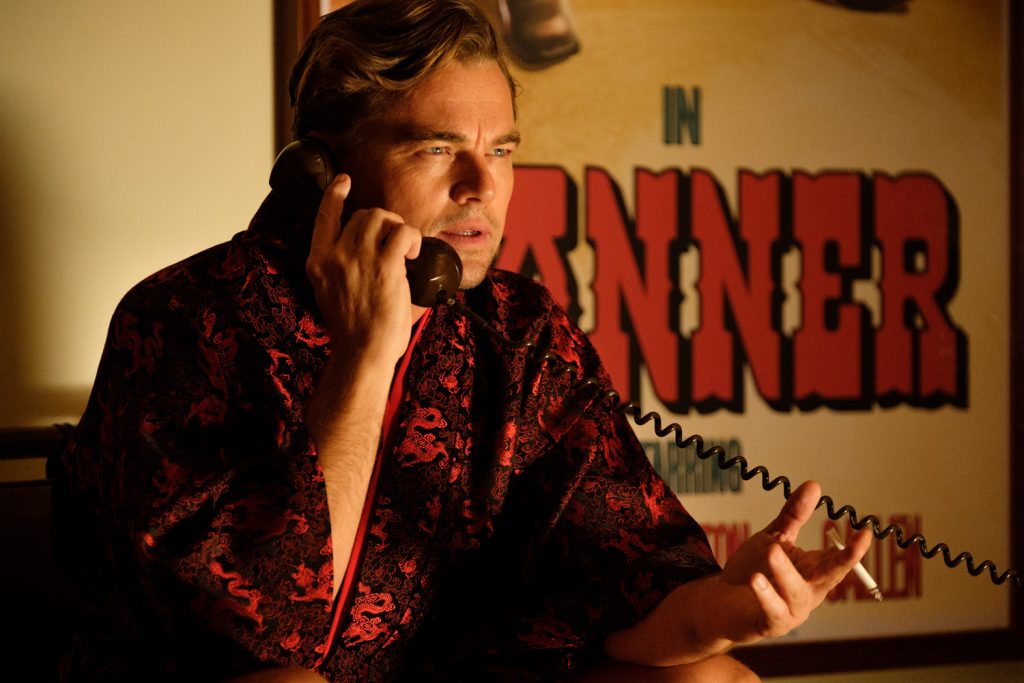
Rick Dalton (Leonardo DiCaprio) is a TV star facing a mid-life crisis. He has started to lose confidence in his abilities as a leading man and feels that his professional livelihood may be hitting the skids. Dalton spends his time hanging out and drinking with his stunt double, Cliff Booth (Brad Pitt), a Viet Nam war vet with a dark past who lives in a trailer. The protagonist yearns for a career resurgence, even wishing that he had the opportunity to meet his successful show business neighbors, director Roman Polanski (Rafal Zawierucha) and his wife, actress Sharon Tate (Margot Robbie). As Dalton and Booth try to come to terms with his career trajectory, they cross paths with members of a dangerous cult commune.
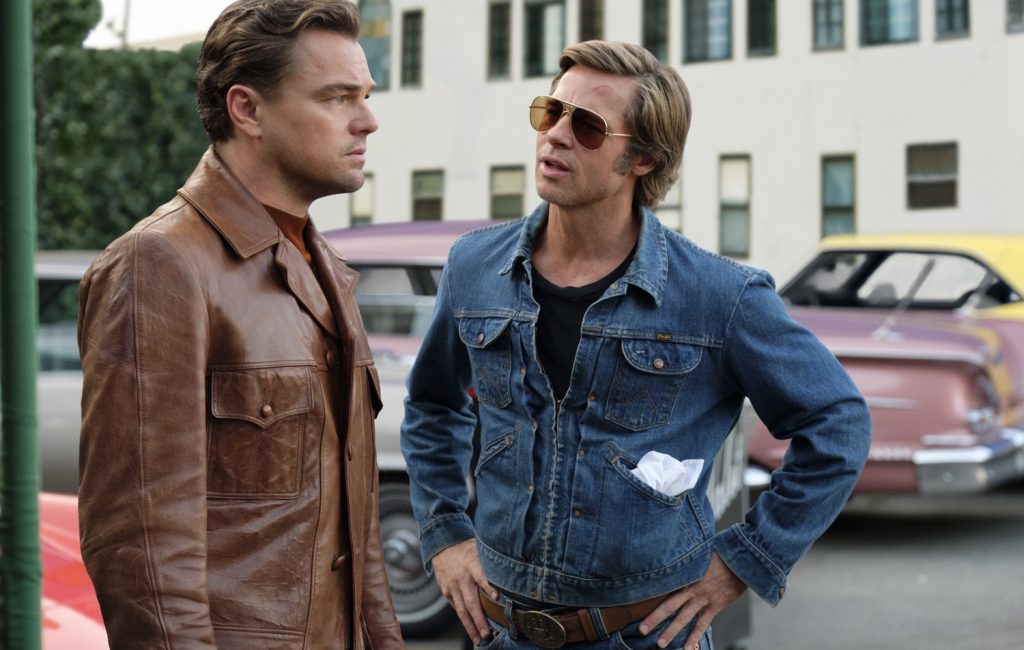
While the Manson family do play a significant part in the proceedings, this is really a movie about Dalton’s personal struggles, as well as his relationship with Booth. Early sections of the movie are all about setting up the feel of the era, following routines in the lives of the leads and transporting viewers into their world. This isn’t a fast-paced flick and it does spend a lot of time setting the stage, as well as referencing and occasionally providing fun recreations of the period’s entertainment. The technique results in a movie that may be a bit overlong, but one that firmly succeeds in creating a specific mood.
The cast are exceptional and the central connection between Dalton and Booth is an oddly sweet one, with the stunt man serving as a protector of the struggling star, offering fresh perspective, advice and hearing out his friend who continually expresses deep insecurities. Booth is also given an incredibly tense scene at the ranch housing many of the Manson family. Viewers know during this section that violence is most certainly on the horizon, and the movie expertly leaves one guessing as to what will occur and when it will happen.
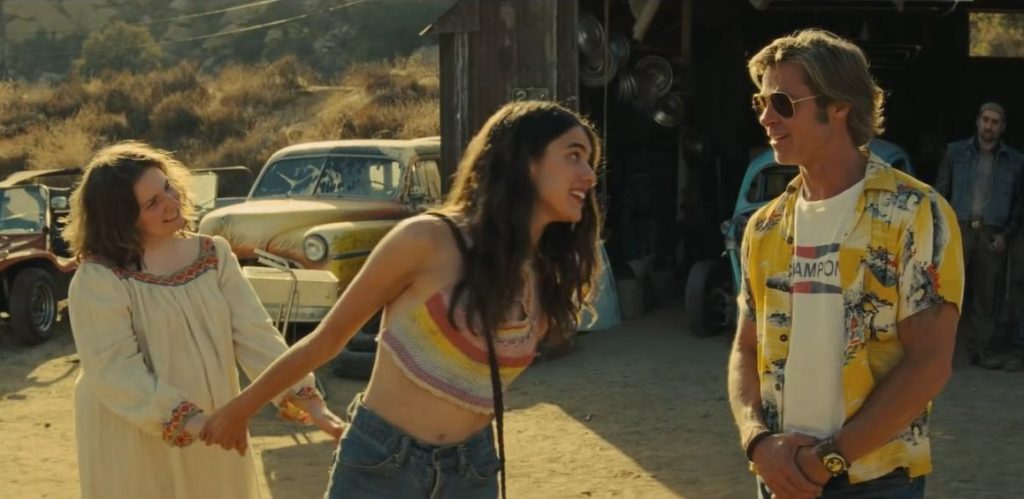
And DiCaprio is excellent as Dalton, with the character hiding nervousness to the point of stammering during conversations with agents about his career, and coming close to a breakdown on several occasions. Highlights include work on a western set that involve a series of interactions with a young thespian, an effective shot that holds close on the performers through an imperfect take, and a scene with an incredibly frustrated Dalton chastising himself. The moments make the protagonist sympathetic and are heartfelt and funny in equal measure.
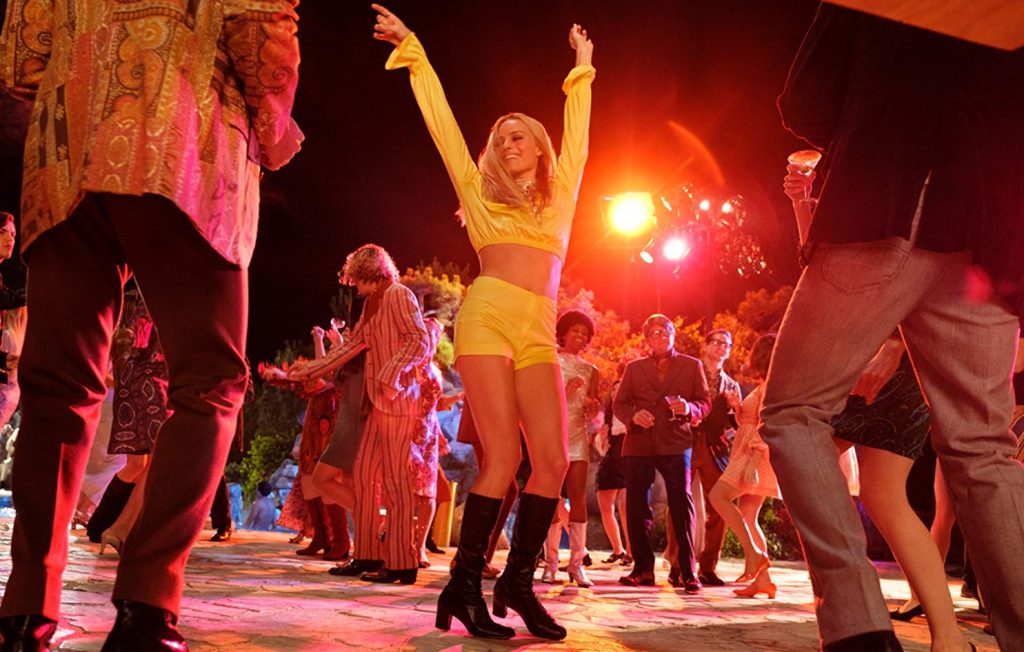
As this is occurring, Robbie’s Tate provides a nice contrast to Dalton as a young and enthusiastic actress truly enjoying the beginnings of what she hopes will be a lengthy career in Hollywood. And of course, there is a lot of meta-related subtext that one can unpack, given that the movie features fictional performers talking about their onscreen roles, personal live, acting and art of make-believe, all the while referencing a real-life event.
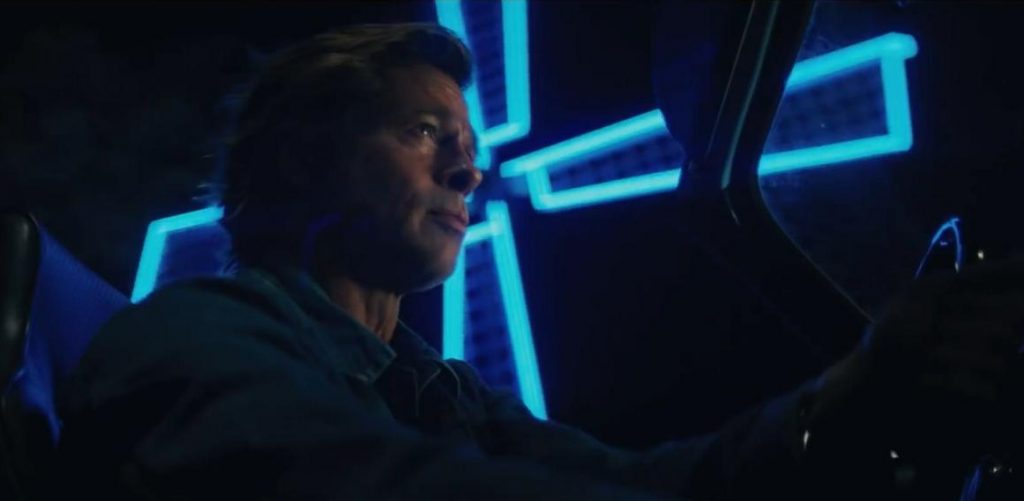
As expected, the movie looks stunning too. Lensed by Robert Richardson (who has shot all of Tarantino’s films from Kill Bill forward, as well as Platoon, JFK, Casino, Snow Falling on Cedars, The Aviator, Hugo and too many others to mention), the gorgeous lighting, camerawork and set are beautiful. Night scenes feature the warm glow of neon and even the streets of Hollywood have been altered to perfectly emulate the period. There are a lot of impressive long takes as well, with elaborate camera moves that follow vehicles and persons through Dalton’s Beverly Hills neighborhood. Richardson may have already won three Oscars thus far in his career, but as of this point another nomination could be in the cards.
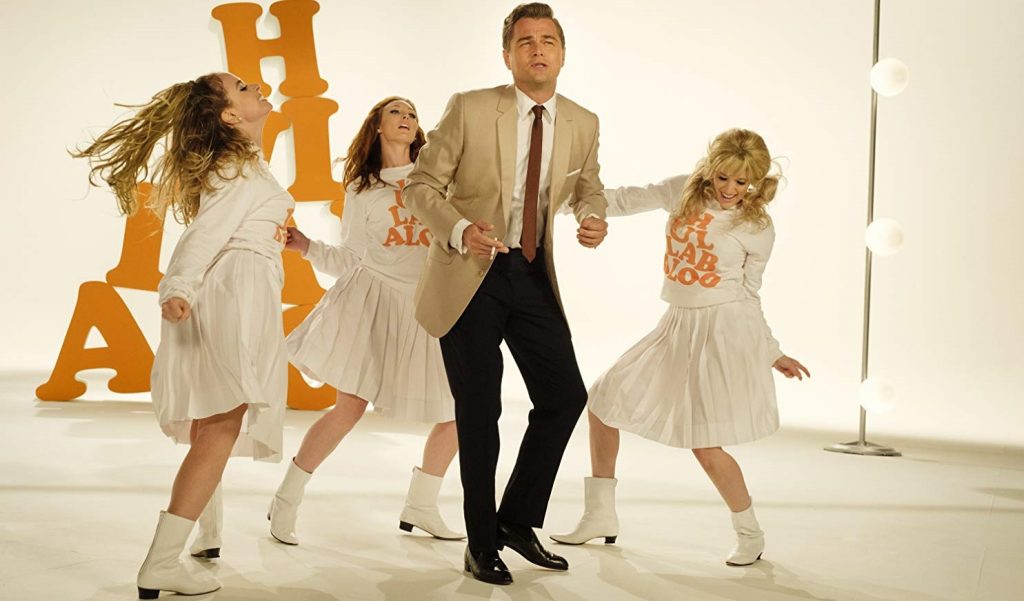
The movie offers some unexpected elements that may bother a few audience members. However, this reviewer felt transported to Hollywood in the 60s, and was consistently fascinated and engrossed through the entire running time. And it most assuredly features some memorable sequences that won’t soon be forgotten. Once Upon a Time… in Hollywood will reward fans willing to be patient, step into a time machine, and experience events from another era through the eyes of an eccentric filmmaker.
Note: Those who enjoy the film will want to stay present through the final credits, which provides a bonus clip.


